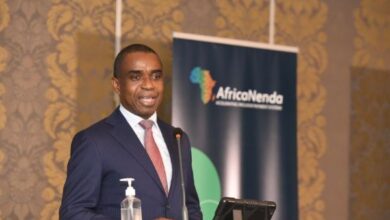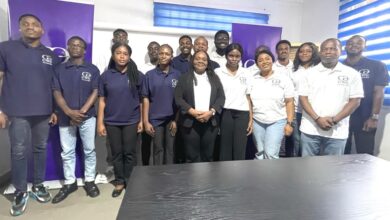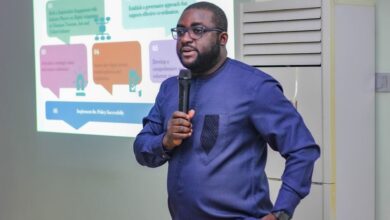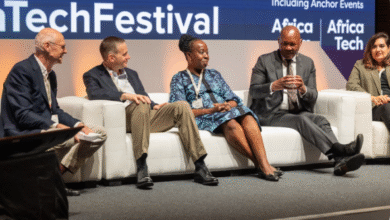Digital transformation key to Ghana’s economic progress
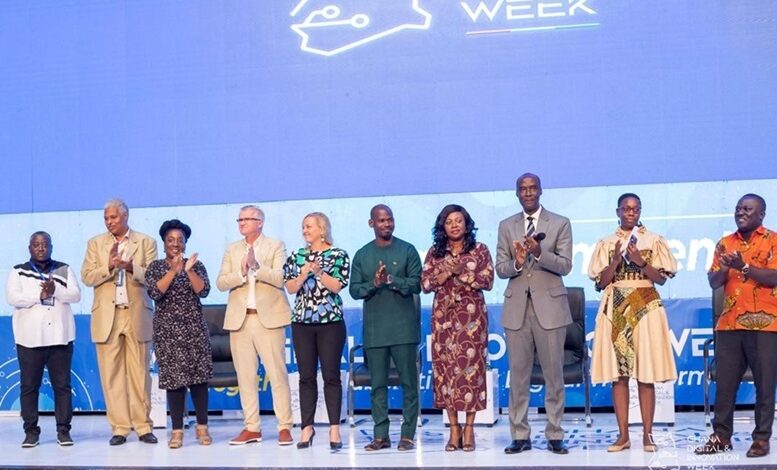
Digital transformation is central to Ghana’s economic and social development and so it is pertinent to leverage on digital technology, the United Nations Resident Coordinator in Ghana, Mr. Charles Abani, has emphasised
Speaking at the opening of the 2024 Ghana Digital& Innovation week (GDIW), Mr Abani stressed the rapid pace at which digital technology is evolving, adding that Africa must seize the opportunity or risk being left behind. “We must leverage digital technology, or this continent will be left behind again,” Mr. Abani noted, emphasizing that digital transformation is at the heart of progress in today’s world.
Reflecting on the theme of the event, ‘ Innovate together: Collaborating for Digital Transformation and impact,” Mr. Abani highlighted the importance of collaboration in innovation. “Innovation requires collaboration, otherwise, an idea remains isolated and may not address a real need. The graveyard of bad apps is full of solutions to problems that didn’t exist,” he remarked, stressing the importance of partnerships in driving sustainable solutions.
The event is organised by a consortium led by the National Entrepreneurship and Innovation Plan (NEIP) , the Ghana Hubs Network ( GHN), Impact Investing Ghana ( IIGH), and partners like GIZ , the German government , MESTI and the Ministry of Communication and Digitalisation
Key Areas Driving Sustainable Development
Referencing the Sustainable Development Goals (SDG) Summit from last year, Mr. Abani identified six critical areas that will propel Ghana and Africa toward achieving both the SDGs and Africa’s Agenda 2063. These areas include transforming food systems, creating jobs with social protection for the most vulnerable, expanding energy access and affordability, enhancing education with future-focused skills, addressing climate change and biodiversity loss, and driving digital transformation.
He pointed out that these six areas are interconnected and must be pursued in harmony. “It is the digitalization of everything we do, whether it’s economic transformation, access to basic services, or peace and security,” Mr. Abani explained, underscoring the pivotal role of technology across all sectors.
Ghana’s Role in Global Discussions
In September, Ghana participated in the global “Summit of the Future,” which focused on five major areas: sustainability and access to finance, peace and security, technology and digital transformation, protecting future generations, and establishing fair global governance. Mr. Abani highlighted the strong role Ghana played in the discussions, which centered around harnessing technologies like artificial intelligence while addressing the associated risks.
He also underscored the importance of sustainable financing and global cooperation in achieving these goals, especially in Africa, where access to resources remains a challenge.
The Rise of the Digital Economy
Globally, the digital economy has become a significant growth driver, valued at $11.5 trillion in 2016, and contributing 15.5% to global GDP. This figure is expected to rise to 25% within a decade. In Africa, the digital economy is forecasted to reach $300 billion by 2025, further highlighting the need for the continent to embrace digital transformation.
Statistics show that 91% of global businesses are engaged in digital initiatives, with 41% of them scaling these initiatives. Despite this progress, the global digital divide persists, with an estimated 2.6 billion people offline in 2023, primarily in low-income countries. Mr. Abani noted that efforts to bridge this divide are underway, with global digital transformation spending reaching $1.5 trillion in 2021 and expected to hit $6.8 trillion by 2023.
Ghana’s Digital Ecosystem and Progress
Mr. Abani praised Ghana’s strides in digital transformation, noting that the country now has about 24 million active internet users, representing 70% of the population, with mobile connections surpassing 41.5 million. E-commerce in Ghana is growing at an annual rate of 28%, and the digital services sector contributes nearly 10% to the country’s GDP.
In the area of financial inclusion, Ghana has seen transformative changes, particularly through mobile money, which now has an 87% penetration rate, one of the highest in Africa. Mr. Abani commended the government’s digital initiatives, such as the e-payment platform, the development of over 200,000 kilometers of fiber-optic infrastructure, and the Ghana Card, which has generated digital IDs for more than 18 million people.
These innovations, he said, are laying the foundation for sustained growth and creating new opportunities, particularly in finance. “A digital address system, combined with a digital ID, gives us the basis for individual credit ratings and access to immense financial opportunities,” Mr. Abani stated, highlighting the potential of these tools in boosting personal and national prosperity.
Challenges and Opportunities
Despite the significant progress, Mr. Abani acknowledged the challenges that remain, including low broadband coverage, high internet costs, reliance on externally owned digital infrastructure, and the need for a future-ready skillset. He emphasized the importance of turning these challenges into opportunities, citing the need for financing, good governance, and intellectual property rights as crucial elements for Africa’s digital transformation.
Commending the Ministry of Communications for its work with UNESCO on AI governance and ethics, Mr. Abani noted that Africa must not only harness the power of artificial intelligence but also address critical questions around bias, intellectual property, and equitable digital access.
“Africa is not a market of consumers,” he said, urging young people to embrace innovation while securing their intellectual property to ensure that Africa can lead, rather than follow, in the digital age.
MESTI speaks
Speaking on behalf of the Minister for Environment, Science, Technology and Innovation, Chief Director of the Ministry, Dr Patrick Nomo was excited about how far the event in its fourth edition has survived.
“The growth and sustainability of this event demonstrate that ecosystems take time to grow and what we’re seeing today holds great promise for Ghana’s emerging digital and innovative ecosystem,” Dr Nomo stated.
TELECEL CEO
Chief Executive Officer of Telecel Ghana, Patricia Obo Nai underscored the need for collaboration to propel innovation.
“ If you look at the youthful population that we have here and the fact that Ghana is high in the consumption of data, we have so much youthful presence on social media . We already have the knowledge, we have the ability and some of them have the tools to be able to use it productively to drive wealth,” she stated.

